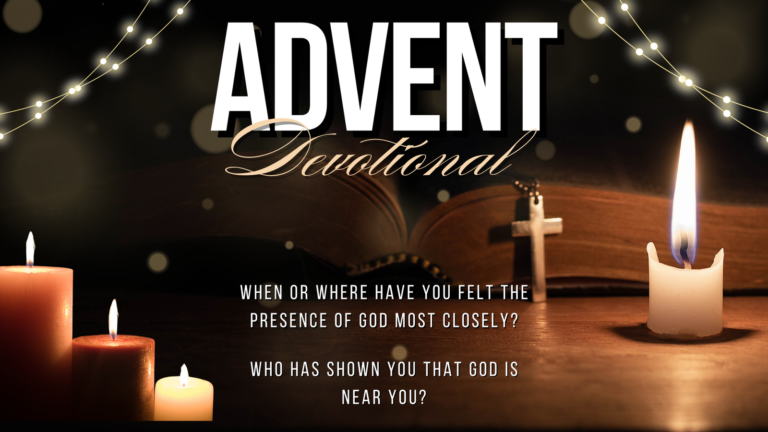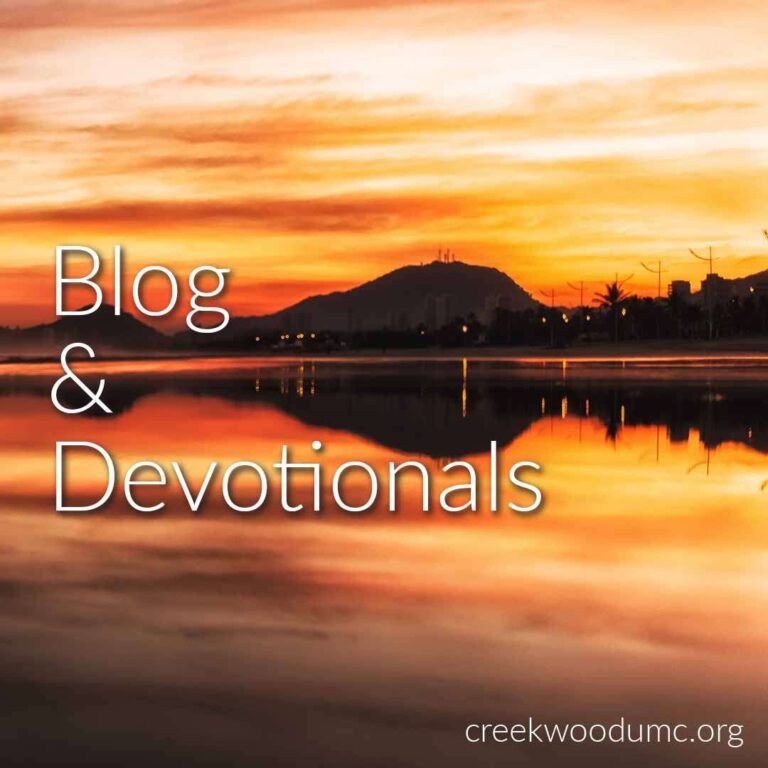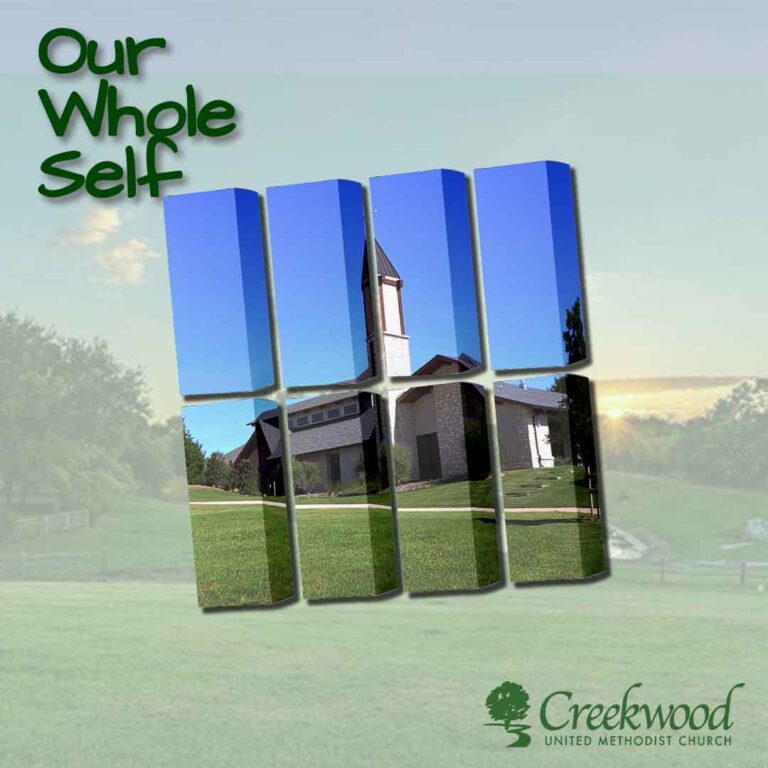Please consider writing a Google Review for us. Log into your Google Account, search for Creekwood UMC, then find the “Write A Review” button and you’re on your way.
What Role Does the Bible Play?
“Your word is a lamp to my feet and a light to my path. I have sworn an oath and confirmed it, to observe your righteous ordinances.”
-Psalm 119:105-106 NRSV
“To everything there is a season, and a time and a purpose under Heaven.”
You might recognize this line of scripture from the beginning poem of Ecclesiastes 3, or you may recognize it from the hit song “Turn, Turn, Turn” by The Byrds, but it expresses a similar thought to what we covered during August regarding spiritual gifts. While a certain gift does make you special, the emphasis in Paul’s teaching from Romans, 1 Corinthians, and Ephesians centered around the roles of each gift and the necessity that each gift work together as one for the good work of Christ. This lyric expresses the similar sentiment: there is a time and place for all things.
So what role does the Bible play amongst all the other sources of information, knowledge, and wisdom?
For example, when faced with the prospect of building a boat, should we rely on our mathematics and physics textbooks? Or the measurements God gave Noah for the ark?
Can we rely upon the Bible for every single thing we need to know in life?
Before we get to that, I want to celebrate some of the different roles that you have played in building up the Kingdom of God and creating awesome moments of celebration! This past week we were led awesomely by the Student Praise Band…

Danced the night away (and played Bingo) with our Open Door guests…

And blessed the confirmation class as we raise up the next generation of faithful followers of Christ…

It’s been a full week of blessings and ministry, and it works because we each claim our gift and our role to make the whole system work.
In the same spirit, I’ll ask again: What role does the Bible play?
Is the Bible a history textbook?
As Pastor Keri Lynn taught us on Sunday, the Bible is full of multiple types of genres of literature, ranging from the poetic lyrics of Psalm 119 (a clever acrostic of the Hebrew alphabet) to the personal letters sent by Paul to Timothy. Certainly some of the most memorable genres in the Bible are the historical books.
Historical books specifically refer to books like 1 and 2 Samuel or Acts that are a historical account of Israel’s history, but the genre spills into the books of the Torah and the Gospels as God’s redemptive will is narrated. The historical stories are so popular because morality in story-form is so much easier to remember and find our place in.
But is the Bible meant to be a history textbook? No.
Let’s take a look at Kings and Chronicles to understand why.
A history textbook (at least a reputable one) should be edited in a way to tell the whole story in an unbiased way, with accurate and verified data – even if this rarely happens. So, for example, if anyone still believes that George Washington cut down a cherry tree and didn’t lie about it, you’re getting mythology and not history. Why would that story be passed down? Because George Washington needed to be seen as someone with integrity, honesty, and humility – opposite of how the King of England was seen. When we get to write our own history, often we can only include the parts that uplift the values we want to espouse and conveniently leave out the whole story. That is when history becomes mythology.
Chronicles does a little of this. Kings and Chronicles both tell the history of the monarchic period, but Chronicles only tells about the kings of the southern kingdom, Judah, with the intent on preserving and lifting up the lineage of David as the perfect king with a covenant with God. Chronicles by-passes Solomon’s adultery and generally lists the good qualities of each king first so as to make a point. Chronicles also makes a big deal about the priesthood and the levites, influencing the reader again to recognize the kingly lineage of David as blessed by God. Kings, on the other hand, covers the good, the bad, and the ugly and concerns itself with a lot more of the civil affairs than the religious affairs. Kings tells many of the same stories of the same characters as Chronicles, but from an entirely different spin.
We could argue that having them both in the Bible means the Bible is telling the whole story, but nowhere in either book do we have unbiased accounts of history. On the contrary, while Israel is recognized to have been an important land area in this time, the Davidic monarchy is made out to be much more important and glamorous than archaeology suggests.
The Bible is full of history, and history that helped academics learn about the early world. But it is written by Israelites and early Christians for the benefit of Israelites and later Christians. While we benefit from this because we can draw inspiration from the past for future glory, to claim the Bible as the history of the whole world would be using the Bible for what it is not intended for.
What About a Science Textbook?
There’s an old sketch from Saturday Night Live where Steve Martin plays a medieval doctor whose solution to every ailment of any kind is “Ah, you just need a good bleeding!” Bleeding was the early medicinal practice of attaching leeches onto patients, or sometimes just cutting them, to let the “bad blood” out, believing the evil spirits causing the illness would leave with the “bad blood.”
Another interesting factoid I learned recently is that as early as the 1900’s more people died from going into a hospital than were saved. The reason centered around unsanitary conditions. Apparently when you have people dying from communicable diseases it’s important to clean up and disinfect – which wasn’t happening.
What I’m getting at is that our understanding of biology, chemistry, physics, math, and all of the scientific/empirically based disciplines has advanced since the Bible was put together.
Relationships have ended over whether the universe was created in October of 4004 B.C. or 13.8 billion years ago, when that is not at all what Genesis is aiming to communicate. People have died from snake bites while maintaining that God will save them, because Mark 16:18 refers to disciples being able to handle snakes with their hands and drink poison without consequence, and modern day disciples want to prove their faith while not realizing that this section of scripture was added later and only exists to show the power of Christ over the evils of this world (poison, snakes, demons, and illness being the 4 most pressing of the ancient world apparently).
Some might argue with me that the Bible’s wisdom supersedes any scientific findings, but that is a statement of faith, not one backed up by empirical evidence – and therefore it still negates the Bible as a textbook of science.
What This Doesn’t Mean…
What this doesn’t mean is that the Bible loses all credibility if the universe, according to all mathematics and laws of physics (that we presume God ordained for the functioning of the world), was created 13.8 billion years ago as opposed to 6,000 years ago. Because the Bible was never intended to play the role of science textbook, we’re not saying anything discrediting to what makes the Bible a lamp unto my feet.
This also doesn’t mean that if the Bible only tells a biased history of the Israelites or Christian movement that it loses all credibility because it is biased. The Bible was meant to pass down a specific story of God’s promise, love, and grace – and it does that very well.
What is the Bible’s Role?
When the Council of Carthage blessed the canonization of the 66 books we now know of as the Bible in 397 A.D., the intent was to form a standard of belief, doctrine, and teaching as encapsulated by the stories, laws, teaching, and more included in the 66 books that make up the Bible.
When the Psalmist proclaims, “your word is a lamp to my feet,” he is giving thanks for the law that God has given so that he knows which way to go and where not to go. The law was for the Psalmist a blessing because he knew where the path to righteousness was and where it was not.
So where the Bible plays the most prominent role in our lives is serving as THE guidebook for that ultimate question of “what is the meaning of life?” The Bible tells us stories of fall and sin to show us the consequences of hurtful actions, but also the promise of redemption is around every corner so that we know there is a future with hope. The Bible gives us laws and statutes to give us the boundaries that we need, while also inspiring us towards higher ideals of unity, love, and justice – with the hope that one day we won’t need a law more than “the law of love.”
While the Bible may not be able to tell me how to successfully run a Fortune 500 company, it very much tells me what my purpose in steering that company should be and how I should behave in my role as CEO. It is a book of morality, ethics, hope, redemption, and inspiration, and it’s role is to make sure we don’t get stuck in the empirical stoicism of data or the nihilistic unbelief that can be scientific pursuit for the sake of scientific pursuit.
The Bible is inspired to inspire – and that’s why we have it.
A Story to End Things…
I have learned that a lesson on Genesis will invariably end up arguing about whether the Bible is a book of scientific fact or not, and the first Bible study I ever led on the Old Testament was no exception. The whole hour and a half were consumed with Genesis 1 and 2, with only a brief foray into Genesis 3 to cover “the fall.” Part of the reason it took so long was the argument of whether you could “throw out” some parts of scripture and still maintain that the Bible is inspired and “a light unto my path.”
It took me that whole time to try and convince this group that we weren’t “throwing anything away,” we were simply reading the scriptures for what they were meant to communicate. Ultimately, it wasn’t me who did the convincing (it rarely is). There was an older woman who had been involved in the discussion who shushed the group and asked us, “Which do you find to be more true? Robert Frost’s poem about two paths in the woods and the choice to take the one less taken, or a perfect picture of two paths in a wood that cannot be disputed as two paths?”
The group paused. “Both” was the answer given. Sure, the picture tells the facts of the scene, but the poem strikes the human emotion and truth of wisdom in the situation. “That’s what I think Genesis 1 and 2 is trying to do for us.”
She’s right.
Sometime scripture and science/history/sports/business/medicine/etc. don’t always match up because they aren’t supposed to. Genesis 1 has no desire to explain the Big Bang theory OR argue against it. Genesis 1 wants us to know of God’s order, power, and providence – that before all things there was God and because of God we have all things.
Which, for humans who are in need of direction, guidance, and hope?
My experience of God in Genesis 1 is as true today as ever before…even if it was 13.8 billion years ago.
As always, we’re here to help you discern through the Bible. We love it. We cherish it. We want you to know it and cherish it too.
Peace,
David Lessner
PS – Don’t forget to sign up for the blood drive on Sunday.




